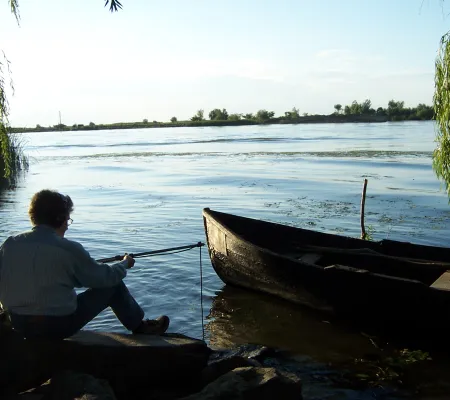Since the 1960s, composer Annea Lockwood has been crafting asound archive of rivers that has coursed along many routes: tape exchanges with friends, listening exercises for students, and indoor and outdoor sound installations. This talk explores her recording practice and technique with particular attention to two large scale river portraits—of the Danube and the Hudson Rivers—to explore how the slow labor of tape recording and editing situates rivers asalways more than water.
Dr. Andrea F. Bohlman, Associate Professor of Music, University of North Carolina at Chapel Hill, studies the political stakes of music making and sound in the twentieth and twenty-first centuries, weaving together archival and ethnographic methodologies. Much of her writing thinks through questions of political agency and strategies of shaping social movements through sound and music in Central and Eastern Europe, as in her 2020 book Musical Solidarities: Political Action and Music in Late Twentieth-Century Poland. Bohlman’s research on the history of sound recording—on mixtapes, field recordings, oral histories, and electroacoustic composition—situates these practices in the everyday and the hands of a range of practitioners. Her current book research explores the history of field recording and the idea (and practice) of consent. The book, provisionally entitled Magnetic Fields: Tape and the Sounding of Consent, connects spools of tape made for academic research, grassroots archives, and soundscape composition.


